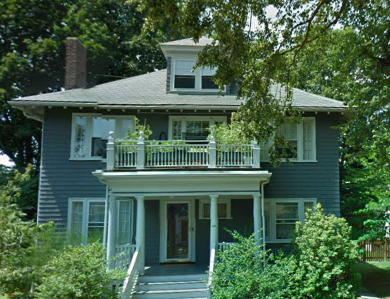By Khaled Alsenan, News Correspondent
Every day, hundreds of tourists and college students squeeze into tour buses to catch a glimpse of Boston’s countless historic attractions. By 2015, the brochures they hold will advertise the city’s latest innovation: a literary cultural district.
Earlier this year, the Massachusetts Cultural Council, a state agency, awarded a group of literary

organizations a $42,500 grant to craft the blueprint of a district that will seek to cast a spotlight on Boston’s literary community and showcase it to the world. The council receives funding from the state legislature to assist nonprofit organizations in creating programs that promote the arts, science and humanities within communities. The project for the literary district is led by Grub Street, an independent writing center.
“I felt like the literary arts were not visible in the city as much as the visual and performing arts,” Eve Bridburg, Grub Street director, said. “Boston has an incredible history of which people are not aware. We were the Athens of the nineteenth century.”
Since forming Grub Street in 1997, Bridburg has witnessed a renaissance that has birthed many literary institutions in the city, like the Boston Book Festival, which took place last month. She said she believes literary interest in the city is growing.
While the group is still in its very early stages of planning, a few elements of the district have been decided upon. In terms of its location, the district will stretch across Copley Square and the downtown area, with the Boston Public Library and the Boston Athenaeum, one of the oldest independent libraries in the US, serving as its anchors.
Patrons might find themselves posing with an Edgar Allan Poe statue or stopping by Sylvia Plath’s old home to learn more about these acclaimed champions of literature.
In addition to honoring the past literary scene, the project will aim to integrate contemporary writers and local booksellers as well.
Through the district, writers and booksellers will have resources they might not have necessarily had access to before, such as promoting their books to a wide audience, Bridburg said.
“If the district raises awareness and gets more people to read, that’s good news for our business,” Jack Teslin, retail associate at downtown Commonwealth Books, said. “Local sellers need more support to gain a visible presence in the city. Otherwise, we’ll be replaced by corporate chain stores.”
However, the American public seems to have disengaged from literature, a trend that may not bode well for a future literary district. A nationwide poll of 1,000, conducted by the Huffington Post last month found that 28 percent of Americans did not read a physical or electronic book last year. A further 25 percent only read one to five books.
In an age of technological abundance, younger generations have become accustomed to consuming instant, electronic reads, a contrast to the foundation of literature within a print-based media. According to USA Today, e-book sales increased by 43 percent last year.
“It’s easy to forget, in the malaise of frat parties and sports press that seem to dominate the scene for young people, this town has deep roots in history, literature and art which are often neglected, even by me,” Joe Latina, a middler behavioral neuroscience major, said.
Since moving to Boston, Latina said he has sensed a lack of public venues that spark intellectual inquiry, and he believes the literary district will provide these places for interested Bostonians.
“It could provide a desperately needed common area, affording students the opportunity to connect with the city’s youth in a setting that doesn’t involve beer and bass-oriented music,” Latina said.
In an attempt to not undermine the cultural shifts among disparate generations, Bridburg promises to create an experience that is inviting to patrons of all ages.
“We don’t only want to target people of a certain demographic who already love books,” Bridburg said. “We want to keep it young and relevant. We’re a college town, it only makes sense in the end.”
Technology will be an element of the experience, with smartphone apps designed to feature self-guided tours, based on one’s literary interests. In addition, the district will embrace the world of e-books.
In the end, Bridburg said she wants the cultural district to serve as a platform from which Bostonians can increase their literary engagement.
“The idea is that this is a way to increase participation in the literary arts in the city, and also increase civic pride and awareness,” Bridburg said. “We want everyone involved; we want school children, teenagers, adults, everyone.”









